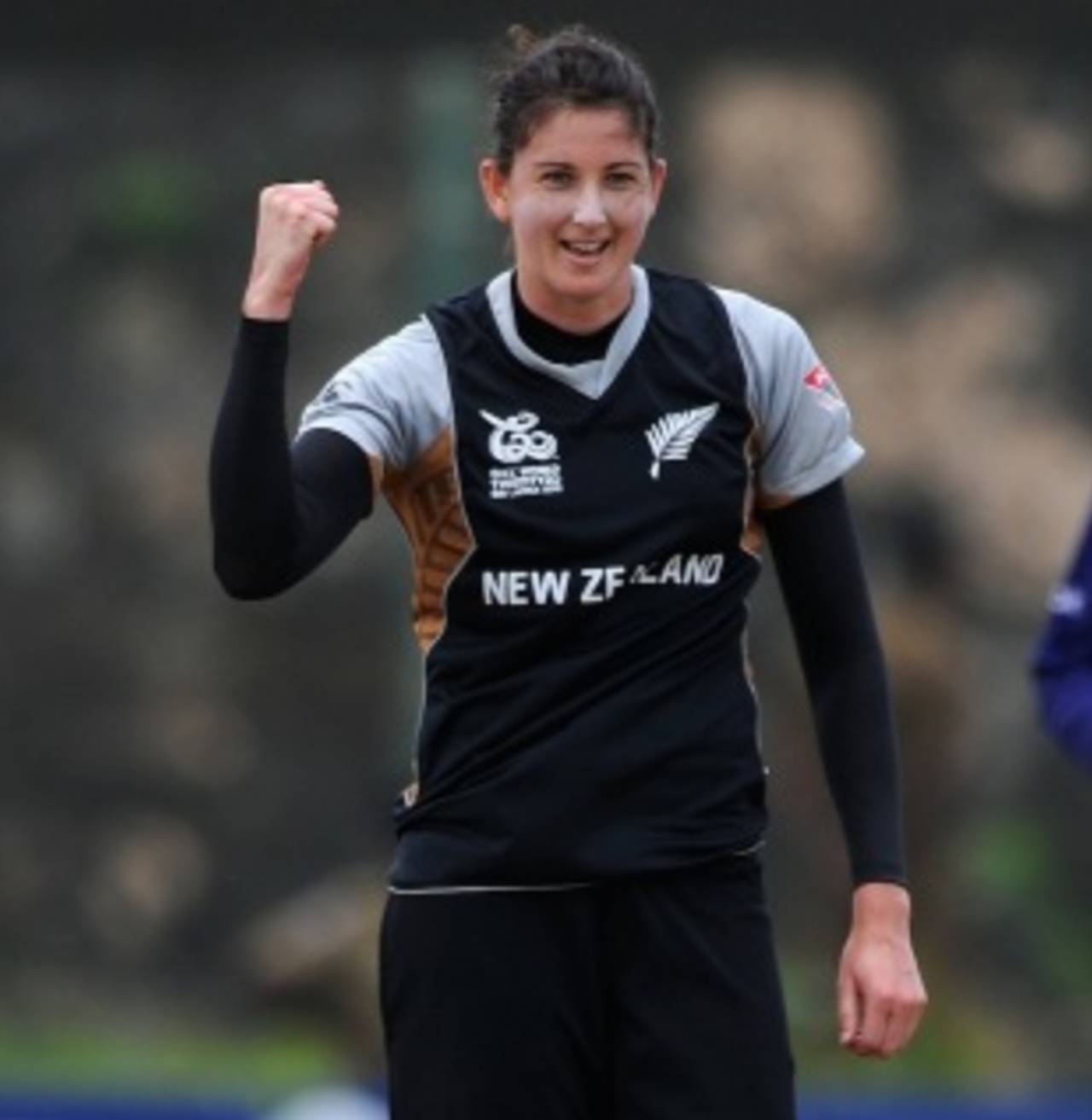Nicola Browne 'more alive' after battle with celiac disease
After a period of frustration due to lack of energy and enthusiasm, Nicola Browne's gluten-free diet, as a treatment for celiac disease, has brought her back to cricket
Abhishek Purohit in Mumbai
13-Feb-2013

Nicola Browne's recovery from celiac disease has brought her a new life • ICC/Getty
Nicola Browne played international cricket for New Zealand for close to a decade. She was Player of the Tournament in the 2010 Women's World Twenty20, where New Zealand reached the final. A year later, she announced her retirement, a month short of her 28th birthday. She wasn't leaving to pursue another career, she didn't want to start a family. She had lost all motivation to turn up for training each day, her mind and body exhausted by a crippling, persistent lack of energy.
Browne had little idea then what was wrong. A few weeks later, the medical diagnosis came in: celiac disease, an auto-immune disorder triggered by gluten that prevents the small intestine from absorbing vital nutrients from food, leading to malnourishment. Anxiety and depression can also result. Browne wanted to know the worst-case scenario. Cancer, osteoporosis, she was told. Cricket was the farthest from her mind at that time. She had to get her life back. Out went all sources of gluten, found chiefly in grains such as wheat, barley, rye.
Novak Djokovic has made the gluten-free diet famous, finding reserves of energy that took his tennis to another level. Browne was about to experience "a flood of energy coming in" herself and after a year she found herself back on the field, eventually returning for the 2012 World Twenty20.
There is a sparkle in her eyes and emotion in her voice as Browne talks about things such as a new beginning and regaining her drive. "I was smiling and laughing the other day when I got a wicket," she says. "I am just much more alive now."
More than being physically draining, the disorder had weighed her down mentally. She says the roots of its onset probably lay in a blow she took to her head while batting in 2006. "Celiac disease can come on from some sort of stress," Browne says. "I got hit on the head with a cricket ball and then developed an infected tooth. I started getting cramp in my head for like an hour. I could not get rid of it. Heavy drugs were brought in to get rid of the headache."
The 2011 Christchurch earthquake worsened matters. While Browne was unharmed, she saw the tragedy unfold in front of her eyes and people running around in the chaos. "We had to play three days later and wanted to get through to our families. It was some experience." Browne believes the combined stress somehow triggered the onset of the disorder.
Suddenly, the routine of playing and performing constantly at the top level started to feel like a burden. "The attention you get through doing something naturally, you get attached to it. 'If I do well people will appreciate me and if I don't people won't'. You can get into a whirlwind where you don't know anything different, anything doesn't feel right."
Browne wasn't desperate to become a cricketer growing up. The game attracted her for "all the challenges" it presented but she was never quite enamoured by it. That is one thing her recovery has changed. "I love cricket more now than before. I probably hated cricket more than I liked it but now I have a different appreciation for it.
"The biggest thing has been the enjoyment factor that I had not experienced before. I was so quiet before, feel balanced and settled now. Cricket wasn't everything anymore. I am truly enjoying playing. I just think it is not about the big trophies or the titles actually. It is that when you lose the expectation on yourself you actually play better."
Regardless of how long she continues playing, Browne's change of diet has to be permanent because celiac disease has no cure yet. She's gone from "feeling sorry" for people who have to stick to a gluten-free regime to now looking forward to sampling different recipes and cooking methods. "People who know me know I really enjoyed my food. But it has been like one door shuts and another one opens."
She has to carry her own food when she travels and though she is determined, the odd temptation does arrive, especially in a country like India, where bread is ubiquitous. "I have brought 20 kg food. You should see my set-up now. I have got suitcases of it. I have taken the love of food to a whole new element. I have to keep eating to keep my energy up.
"If a naan comes up or garlic bread … but every week I get better and better. But the other day there was a chocolate cake … you just deal with it. Change of habit takes a while but it eventually becomes part of your routine and then it is what it is." At the moment, it is a mix of "terrific successes and some terrible failures" as Browne continues to discover a new world of recipes while also rediscovering her old world of playing cricket.
Abhishek Purohit is a sub-editor at ESPNcricinfo